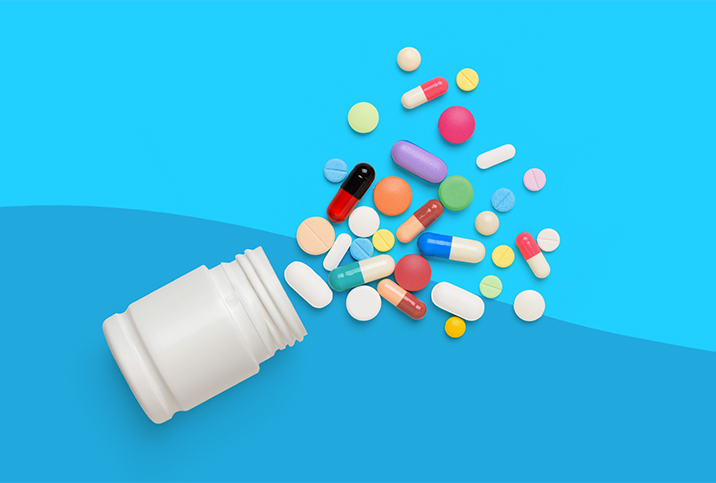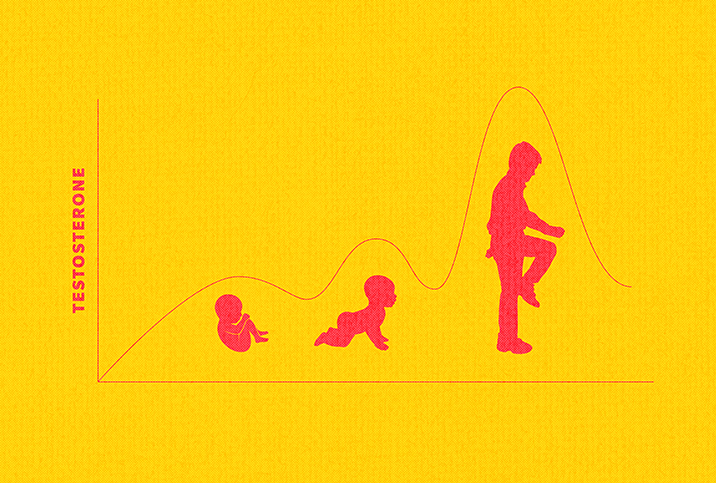Antipsychotic Drugs and Their Potential Sexual Side Effects for Men

Steven, a man in his 30s diagnosed with schizophrenia, complained to his psychiatrist about his sexual performance. He said he was suffering from decreased sex drive, erectile dysfunction (ED) and delayed ejaculation.
All of it was due to the medication he was taking: risperidone, a commonly prescribed antipsychotic drug.
Nicola Cascella, M.D., Steven's psychiatrist, switched his medication to ziprasidone (Geodon) and the sexual side effects dissipated. Fortunately, Steven's psychosis did not worsen with the drug change.
"It depends on how active the patient is sexually," said Cascella, an assistant professor of psychiatry and behavioral sciences at Johns Hopkins University in Baltimore. "Of course, if he's also in a relationship with a partner, then I'm willing to consider either decreasing [the dosage] or switching to another antipsychotic. In that case, the response was positive."
Important meds, real side effects
Steven (a pseudonym) is one of nearly 4 million American adults taking prescription antipsychotics, which are drugs used to treat conditions such as schizophrenia, bipolar disorder and major depressive disorder. Antipsychotics can also be prescribed as a sleep aid and to treat severe nausea.
While these medications can be critical in helping many people with severe mental illness, they can carry significant sexual side effects. In fact, sexual dysfunction is present in 48 percent to 75 percent of patients who take antipsychotics, according to research published in Psychiatric Times.
"For many people with these conditions, especially schizophrenia, they do quite poorly without medication," said Joshua Kantrowitz, M.D., an associate professor of clinical psychiatry at the Columbia University Department of Psychiatry and New York State Psychiatric Institute. "This is despite the side effects that the medications cause. It's a balancing act. But for most people, they tend to function a lot better with the medication."
Schizophrenia, which affects about 1 percent of the U.S. population, is commonly marked by paranoid delusions. People with schizophrenia might feel like others are constantly talking about them or out to get them. They may have somatic delusions in which they're convinced something is medically or physically wrong with them. Other common symptoms are auditory hallucinations (hearing voices) or visual hallucinations.
Antipsychotic drugs and their ties to sexual dysfunction
Many of the sexual side effects men experience from antipsychotics stem from the drug increasing the level of prolactin, a hormone produced in the pituitary gland.
"These medications all have in common some blockage of dopamine receptors, which is helpful for many people with schizophrenia in the right part of the brain," Kantrowitz explained. "Unfortunately, these medications go throughout the brain and throughout the body and also lead to a blockage of dopamine, especially dopamine type 2 receptors, in the part of the brain that controls prolactin, which leads to an elevation in prolactin."
High levels of prolactin can negatively impact the sexual and reproductive hormonal pathway, according to Bobby Najari, M.D., a urologist at NYU Langone Health in New York City.
"If prolactin is too high, it essentially tricks your pituitary gland into lessening the amount of or decreasing the amount of follicle-stimulating hormone, which tells the testicles to make sperm, and then luteinizing hormone, which tells the testicles to make testosterone," Najari explained. "High amounts of prolactin can definitely affect both sexual function and reproduction."
Cascella and Kantrowitz both said the sexual side effects of antipsychotics are understudied by researchers and underreported by patients. In some cases, the side effects can lead a patient to stop taking their medication.
Kantrowitz said that for a sizable majority of his patients with schizophrenia, the sexual side effects are either not a problem or not something they talk about because they have little interest in a romantic relationship.
"They might have sexual dysfunction, but it's something they weren't interested in because of their negative symptoms anyway," he explained.
Weigh the benefits versus the risks
The sexual side effects of antipsychotics are not something many prescribing psychiatrists discuss, according to Kantrowitz.
"It doesn't come up a lot and perhaps it should," he said. "Even if you are not interested in dating and it's not something that's going to be in your future, if it's affecting masturbation, that's some pleasure we're taking away from people."
Risperidone and olanzapine are the antipsychotics that have shown the highest sexual dysfunction rates. But different types of antipsychotics can lead to different sexual side effects, so Kantrowitz said it's worth exploring other medications if the side effects are causing distress.
"You always have to be careful to not create another problem to solve when you're solving one problem," Kantrowitz said. "But it's definitely something that should be on people's minds as they're prescribing these medications."
'Even if you are not interested in dating and it's not something that's going to be in your future, if it's affecting masturbation, that's some pleasure we're taking away from people.'
Cascella said he may instruct a male patient to "take a drug holiday" if he's planning to have sex over the weekend. The patient can stop taking the antipsychotic two days before.
"They'll say, 'We're planning for sexual intercourse, but then by the time I get there, my voices are so distressing that I'm not in the mood to have sex,'" he said. "It's a real fine balance."
If you are experiencing sexual side effects from your antipsychotic medications, Kantrowitz recommends you let your psychiatrist know.
"Like every treatment, there's almost certainly going to be side effects," he said. "There's very rarely going to be no side effects. But do the benefits outweigh the risks?"


















